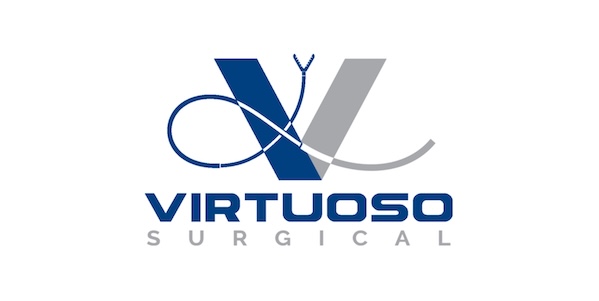FDA filing is about to start, and one medical device has completed its first human clinical trial
May 21, 2025
Source: drugdu
 228
228
 Recently, Duke Herrell, CEO of Virtuoso Surgical, announced that the robotic endoscope system developed by the company has successfully completed the first batch of human clinical trials. This milestone event marks an important technological innovation in the field of minimally invasive surgery.
Recently, Duke Herrell, CEO of Virtuoso Surgical, announced that the robotic endoscope system developed by the company has successfully completed the first batch of human clinical trials. This milestone event marks an important technological innovation in the field of minimally invasive surgery.
It is reported that from May 12 to 13, the VIABLE clinical trial was performed by Professor Yuanjin Zhang of the Chinese University of Hong Kong, who successfully performed en bloc resection of bladder lesions on 6 patients, treating a total of 11 lesions. Professor Yuanjin Zhang is not only a top surgical expert in the field of bladder cancer, but also the pioneer of the "en-bloc" technique, which can significantly improve the completeness and accuracy of tumor resection.
According to Virtuoso, the system is equipped with two needle-shaped robotic arms that pass through a sheath with a diameter of less than 1 cm and perform surgical operations in conjunction with a traditional hard mirror. The diameter of the entire device is controlled within 45% of a U.S. dime (about 17.9 mm), which is significantly smaller than existing endoscopes. The system also innovatively integrates high-definition cameras, tissue graspers, retractors, tissue ligators, laser positioning devices and electrosurgical tools to form a multi-dimensional operating platform.
The uniqueness of this system lies in the "human-machine collaboration" mode: in the initial stage, the surgeon performs the operation through a remote control system, during which the robot can deeply learn human decision-making logic. Based on the integration of artificial intelligence, machine learning and computer vision technologies, Virtuoso is working to build an autonomous surgery platform for the future. Herrell said that the company's strategic goal is to promote the popularization and optimization of en bloc resection of bladder lesions through technological innovation.
Duke Herrell emphasized that the company plans to submit an investigational device exemption (IDE) application to the U.S. Food and Drug Administration (FDA) in the near future to pave the way for clinical research in the United States.
It is worth noting that the system's miniaturized design breaks through the volume limitations of traditional endoscopes, and its precise control capabilities can significantly reduce surgical trauma. With the continuous empowerment of artificial intelligence technology, it may show greater potential in complex surgical procedures such as tumor resection and tissue repair in the future.
https://news.yaozh.com/archive/45483.html
By editorRead more on
- Rovaxitinib approved for marketing, filling the demand for myelofibrosis treatment March 2, 2026
- Warrant Pharmaceuticals’ active pharmaceutical ingredient receives Brazil’s first official GMP certification March 2, 2026
- Merck’s New Story March 2, 2026
- Rongchang Biotechnology has turned a profit! March 2, 2026
- Jiuyuan Gene’s “Simeglucopyranoside” for weight loss (Jikeqin®) has been submitted for market approval March 2, 2026
your submission has already been received.
OK
Subscribe
Please enter a valid Email address!
Submit
The most relevant industry news & insight will be sent to you every two weeks.



